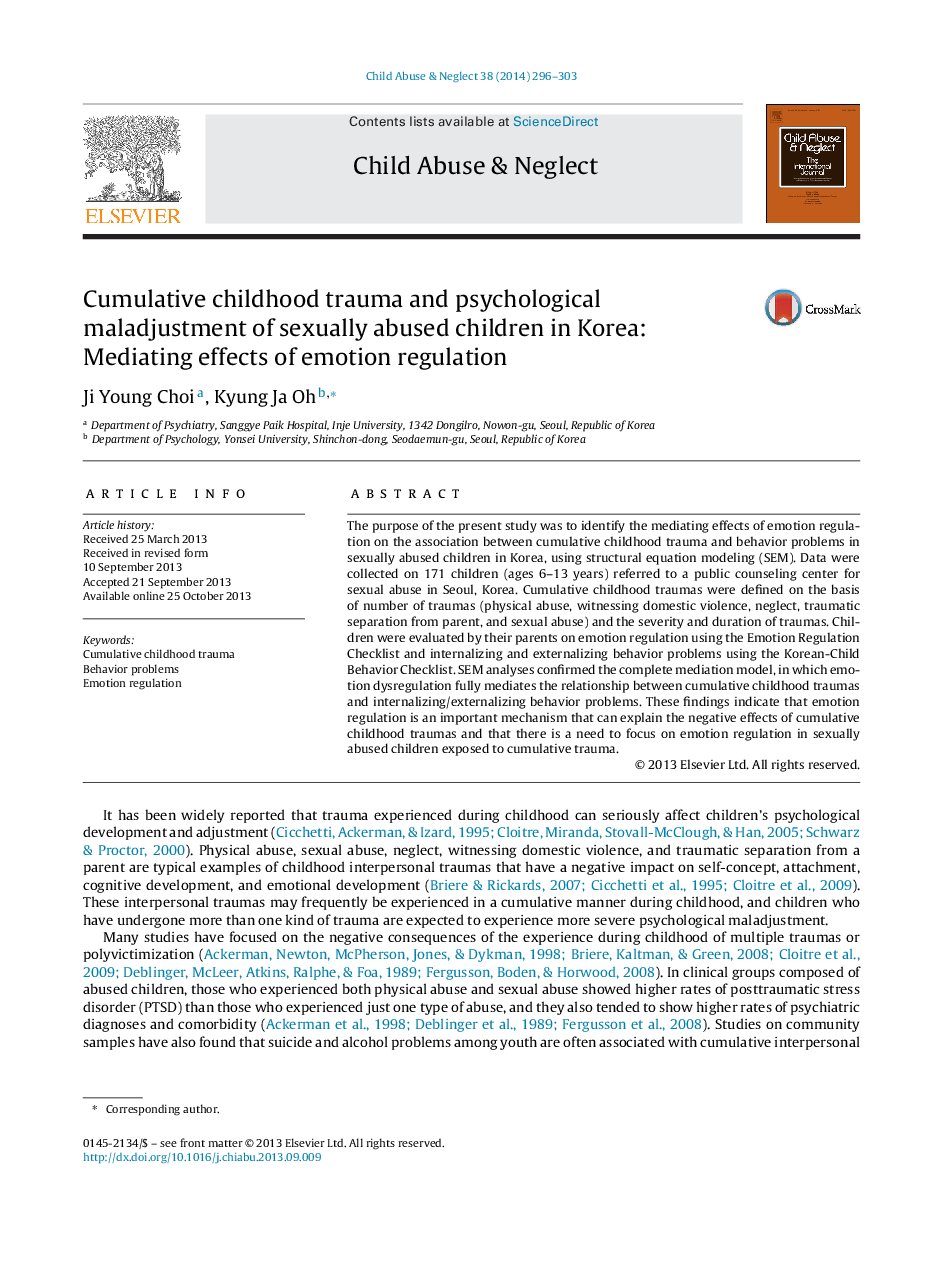| Article ID | Journal | Published Year | Pages | File Type |
|---|---|---|---|---|
| 344835 | Child Abuse & Neglect | 2014 | 8 Pages |
The purpose of the present study was to identify the mediating effects of emotion regulation on the association between cumulative childhood trauma and behavior problems in sexually abused children in Korea, using structural equation modeling (SEM). Data were collected on 171 children (ages 6–13 years) referred to a public counseling center for sexual abuse in Seoul, Korea. Cumulative childhood traumas were defined on the basis of number of traumas (physical abuse, witnessing domestic violence, neglect, traumatic separation from parent, and sexual abuse) and the severity and duration of traumas. Children were evaluated by their parents on emotion regulation using the Emotion Regulation Checklist and internalizing and externalizing behavior problems using the Korean-Child Behavior Checklist. SEM analyses confirmed the complete mediation model, in which emotion dysregulation fully mediates the relationship between cumulative childhood traumas and internalizing/externalizing behavior problems. These findings indicate that emotion regulation is an important mechanism that can explain the negative effects of cumulative childhood traumas and that there is a need to focus on emotion regulation in sexually abused children exposed to cumulative trauma.
